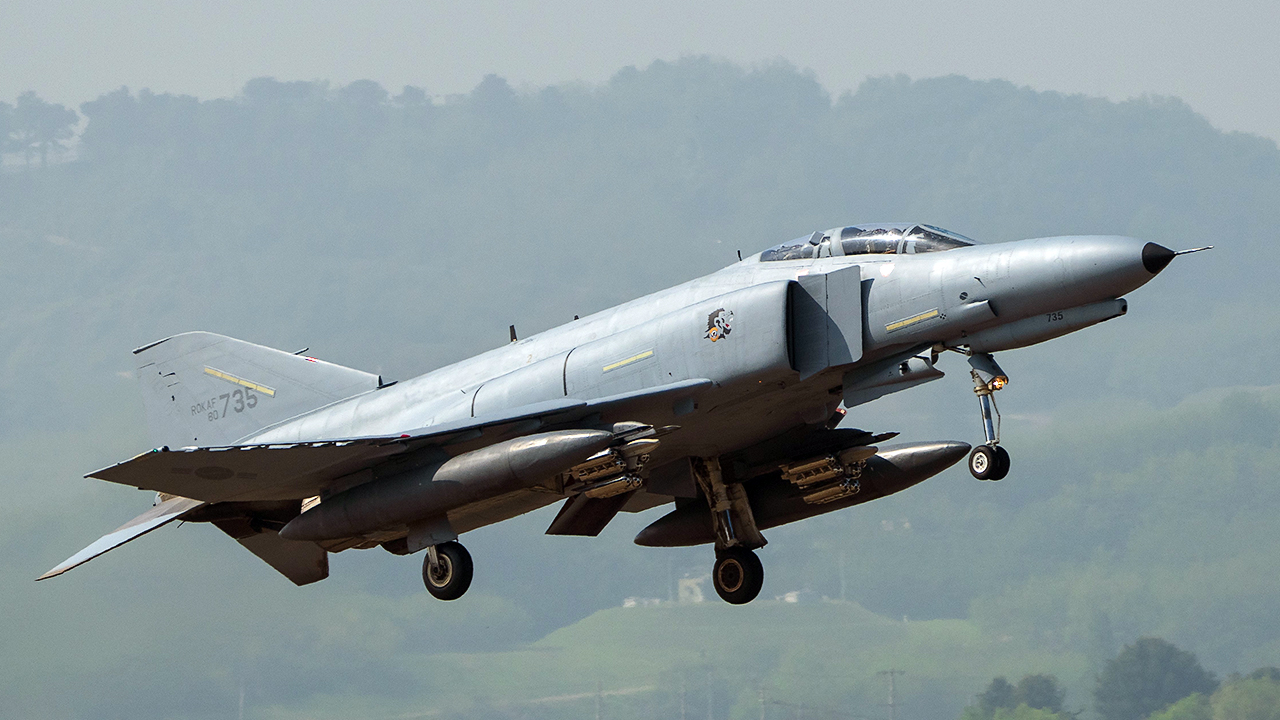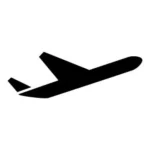
Republic of Korea Air Force Phantoms made their last public appearance at the 2024 Suwon Space Challenge event.
On April 27, 2024, the Republic of Korea Air Force’s (ROKAF) F-4E made their last public appearance. With the Phantom II fleet expected to retire by June 2024, huge crowds from across the world attended this year’s Suwon Space Challenge to get one last glimpse of the historic airframe.
As one of the regional airshows in South Korea, the Space Challenge series of airshows are held across air force bases in the country. Most notably, the one held last Saturday was hosted by the 10th Fighter Wing at Suwon airbase. With the 10th Fighter Wing being the ROKAF’s last unit to operate the F-4E, many came from afar to witness the Phantom’s last public appearance.
To mark the aircraft’s last public appearance before its retirement ceremony, a four-ship of F-4Es (s/n 80-735, 80-737, 80-738, 80-740) put on a display. The routine included a close formation flight, single airframe and paired manoeuvres, and a rare flare deployment demonstration.
F-4 Phantoms have been flying with the ROKAF since 1968.
The ROKAF was one of the F-4’s earliest foreign operators, having operated the type since 1969. As part of a deal between the US to participate in the Vietnam War, South Korea became the fourth country to fly the F-4.
With the ROKAF’s main fighter being the budget friendly F-5 beforehand, the Phantom helped form South Korea’s aerial superiority in the 70s. Throughout the years, the ROKAF operated a total of 92 F-4D, 103 F-4E, and 27 RF-4C variants. With the F-4D and recon variant RF-4C having retired in 2010 and 2014, the remaining Phantom fleet consists of 19 F-4Es.
The display aircraft (s/n 80-737) can be seen taxiing back to its hangar with external fuel tanks and display smoke canisters.
” data-medium-file=”https://i0.wp.com/theaviationist.com/wp-content/uploads/2024/04/Phantom-Taxi.jpg?fit=460%2C259&ssl=1″ data-large-file=”https://i0.wp.com/theaviationist.com/wp-content/uploads/2024/04/Phantom-Taxi.jpg?fit=706%2C397&ssl=1″ class=”size-large wp-image-85774″ src=”https://i0.wp.com/theaviationist.com/wp-content/uploads/2024/04/Phantom-Taxi.jpg?resize=706%2C397&ssl=1″ alt width=”706″ height=”397″ srcset=”https://i0.wp.com/theaviationist.com/wp-content/uploads/2024/04/Phantom-Taxi.jpg?resize=706%2C397&ssl=1 706w, https://i0.wp.com/theaviationist.com/wp-content/uploads/2024/04/Phantom-Taxi.jpg?resize=460%2C259&ssl=1 460w, https://i0.wp.com/theaviationist.com/wp-content/uploads/2024/04/Phantom-Taxi.jpg?resize=128%2C72&ssl=1 128w, https://i0.wp.com/theaviationist.com/wp-content/uploads/2024/04/Phantom-Taxi.jpg?resize=768%2C432&ssl=1 768w, https://i0.wp.com/theaviationist.com/wp-content/uploads/2024/04/Phantom-Taxi.jpg?resize=678%2C381&ssl=1 678w, https://i0.wp.com/theaviationist.com/wp-content/uploads/2024/04/Phantom-Taxi.jpg?w=1280&ssl=1 1280w” sizes=”(max-width: 706px) 100vw, 706px” data-recalc-dims=”1″>
While the KF-16 has replaced the F-4’s role as the nation’s main fighter in 1994, it still offered unique capabilities that no other subsequent platform could. The remaining Phantoms have been kept in service into the 2020s due to its unique ability to carry larger payloads that no other aircraft in the ROKAF arsenal can’t. Most notably, the AGM-142 “Popeye” missile has been used exclusively by the Phantom on air-to-surface roles. Only a few weeks ago the last Popeye missiles were fired during a live fire exercise.
Since the advent of more modern fighters such as the KF-16 and F-15K, the F-4E has been focusing on attack roles as a launching platform for air-to-ground missiles and guided bombs like the AGM-65 Maverick and KGGB. With the MRO contract with Korean Air ending on May 26, 2022, any Phantoms that reached its maintenance cycle have been retired one at a time. Along with the F-5E/Fs the F-4Es in service have saw an extension in their service time do to the delay of the KF-21 program. Starting with the F-5 squadrons of the 18th Fighter Wing, the KF-21 should replace the aging airframes in the coming months.
ROKAF expected to retire remaining Phantoms by June 7, 2024
With the KF-21 Block I pace ramping up, the ROKAF’s F-4E retirement is scheduled to be on June 7, 2024 at Suwon Airbase. With the ceremony expected to be conducted within the unit itself, last weekend’s 2024 Suwon Space Challenge is thought to be the Phantom’s last public appearance during its active duty.
Along with the ROKAF, the Hellenic Air Force is also scheduled to retire its remaining fleet of F-4Es soon. This will leave only Iran and Turkey to be the remaining operators of the F-4 Phantom going into the 2030s.
